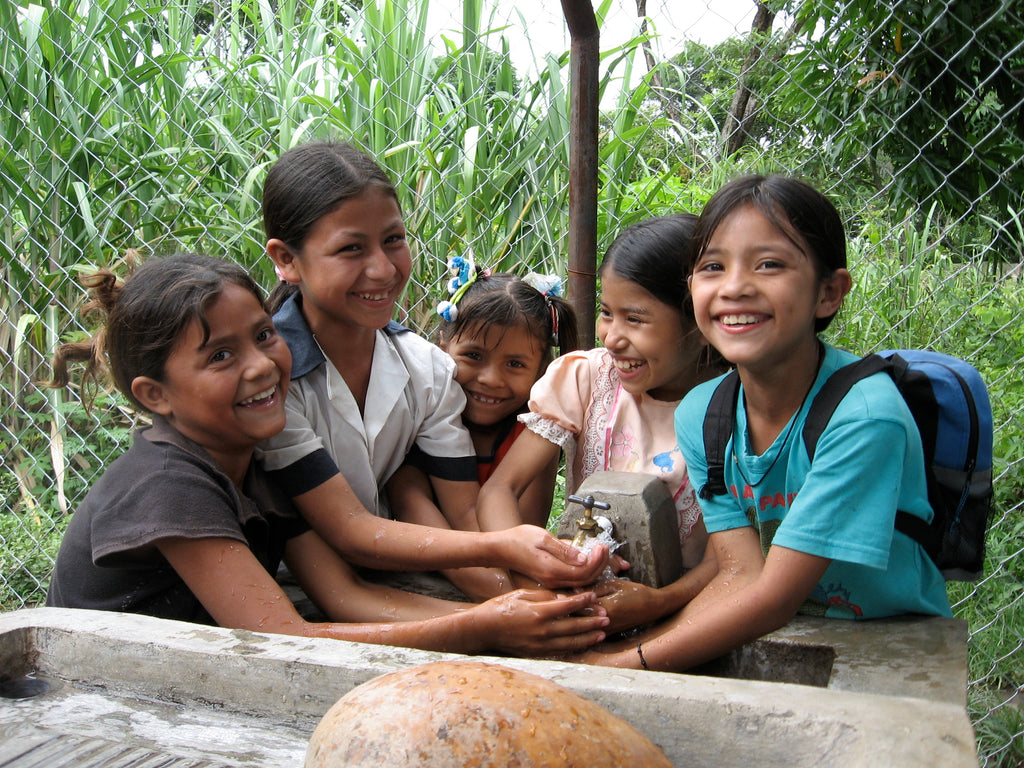
Clean water isn't a sexy topic that gets a lot of coverage. But on World Water Day, we're joining millions of people around the world to change that. At Society B, we are passionate about clean water. We believe that clean water is the bottom rung of the ladder out of poverty for millions of people. And to explain why, I'll tell you a personal story. In 2008, I was lucky enough to get a job with an NGO based in Ethiopia, called the Organization for Rehabilitation and Development in Amhara (I’ll use ORDA now to spare you some time reading that again).
As part of my job with ORDA, I went to Ethiopia for a few weeks to tour the Amhara region and see water projects and other development programs underway. There, I saw clean water pumps and wells that Water.org had installed. And I saw the communities using them with great pride. I also had the eye-opening experience of visiting communities that did not yet have the luxuries of clean water or sanitation.

Unlike in America, the Ethiopian government doesn’t have the resources to install plumbing and sewage lines in every town. Most people cannot just turn on a faucet in their kitchen for safe water. They often don't have toilets nearby, let alone in their houses. And showers? Ha! In rural areas, you're lucky to find showers in hotels, let alone in houses or huts.
So then what? Where do people get water to drink? Where do they get water to bathe or wash dishes or irrigate crops?
They have two options, none of which is good:
And sometimes, it’s a combination of these “options," meaning millions of people in Ethiopia must walk hours each day to fetch dirty water.
“In rural Ethiopia, women and children walk up to six hours to collect water. Most people collect water from shallow, unprotected ponds [that] they share with animals. Other people collect water from shallow wells. Both of these sources are subject to contamination as rainwater washes waste from surrounding areas into the source. The jugs women use to carry water back to the village weigh up to 40 pounds! Often, young children are left at home while their mother and older siblings collect water and their fathers work.” – Water.org
When I toured Ethiopia, I saw young girls who carried heavy jugs and jerry cans on their backs while they walked for miles (wearing flimsy sandals or no shoes at all) to fetch water from streams that livestock also used. I saw women and kids dipping containers into a “water catchment” that more closely resembled a mud pit. I saw one little boy carrying a dirty water bottle, which his mother later filled up with unsafe water.
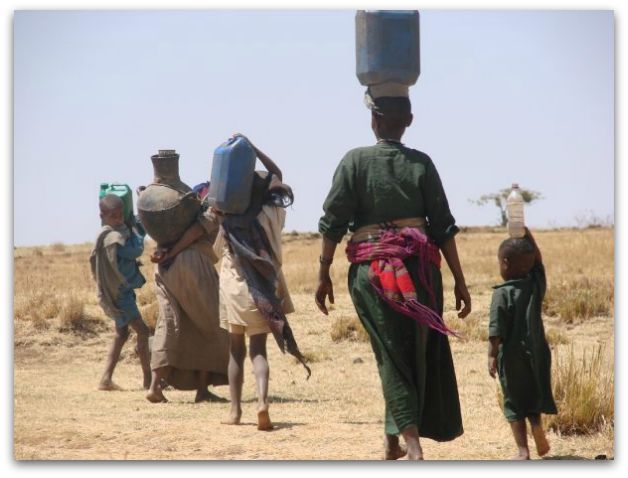
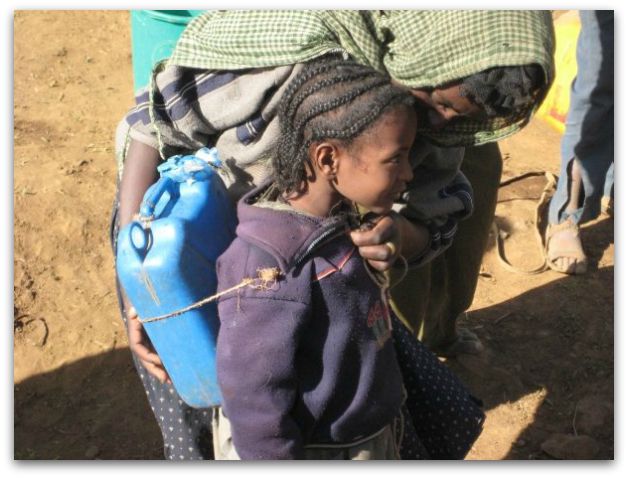
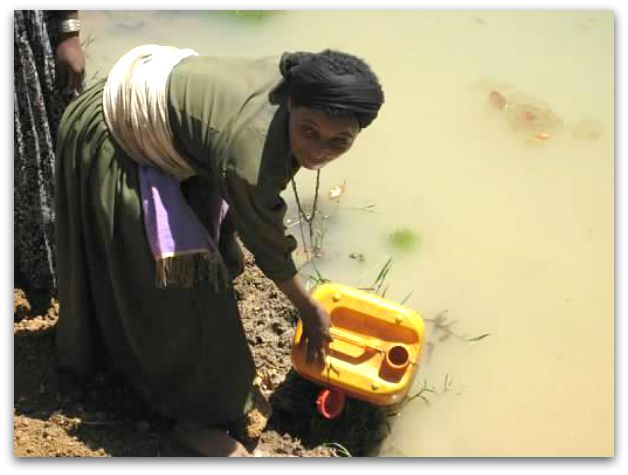

Of course, the scene was much brighter in communities that were getting help from Water.org. They were thriving. They had clean water sources. The people were healthier and far less likely to die of water-related illnesses.
But those communities weren’t just better off because of their healthy water. Clean water has a ripple effect. Water.org insisted on creating councils of local people who would be responsible for the water sources. These people were trained on how to effectively manage the water sources. The councils were required to elect women as members, which was incredibly progressive for these rural Ethiopian communities. As a result, women were empowered and respected in their villages, often for the first time ever.
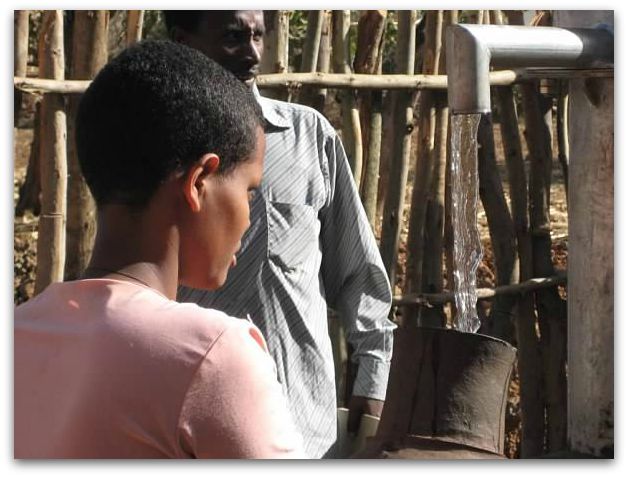
The work often doesn’t stop with just a clean water source. Water.org is also dedicated to providing hygiene and sanitation. They provide hand-washing stations and latrines and educate communities on the importance of hygiene and sanitation to prevent diseases.
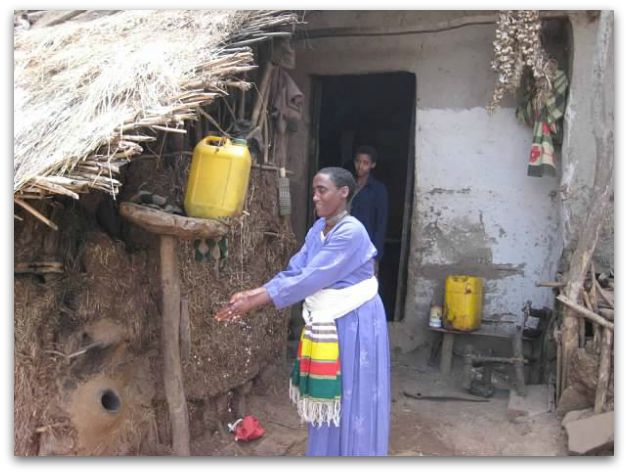
Water.org also worked with local organizations, like ORDA, to identify locations for water and sanitation programs based on need and sustainability. Water.org didn’t swoop in with a bunch of American engineers, dig the wells, and say “you’re welcome and good luck” to villagers. Instead, they relied on local people to have a say in what would work and what wouldn’t, and those local Ethiopians participated in every aspect of the program.
Since my trip to Ethiopia in 2008, Water.org created WaterCredit, a program that connects people to affordable financing, empowering them to install household water connections and toilets at home. With these benefits, people can confidently take a loan to construct their very own water tap.
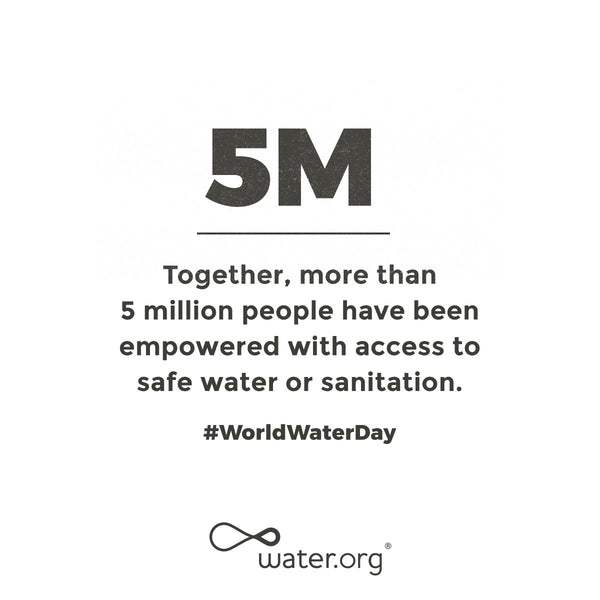
So why do I say that clean water is the bottom rung on the ladder out of poverty? To truly reduce poverty, we need to keep people healthy, productive, and empowered. Clean water does all of these things. Healthy people can work more and provide more income for their family. Clean water sources also mean that women and children—usually girls—no longer spend hours walking for water and are more likely to be able to attend school or other work. (And since women typically invest far more of their earnings into their families and communities, everyone wins when women are empowered with jobs.) Also, girls are less likely to be abducted or raped.
Clean water leads to health, education, productive communities, and empowerment for women and girls.
That’s why we’re so proud to support Water.org at Society B. When you choose Water.org at checkout, we're donating 10% of every purchase to help them provide clean water and sanitation to more people. Please join us, and help spread the word.
This article was written by Lindsay Byers-Hirth, Co-Founder & Chief Giving Officer at Society B.